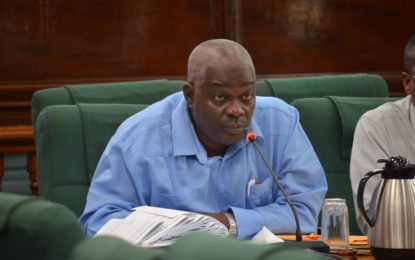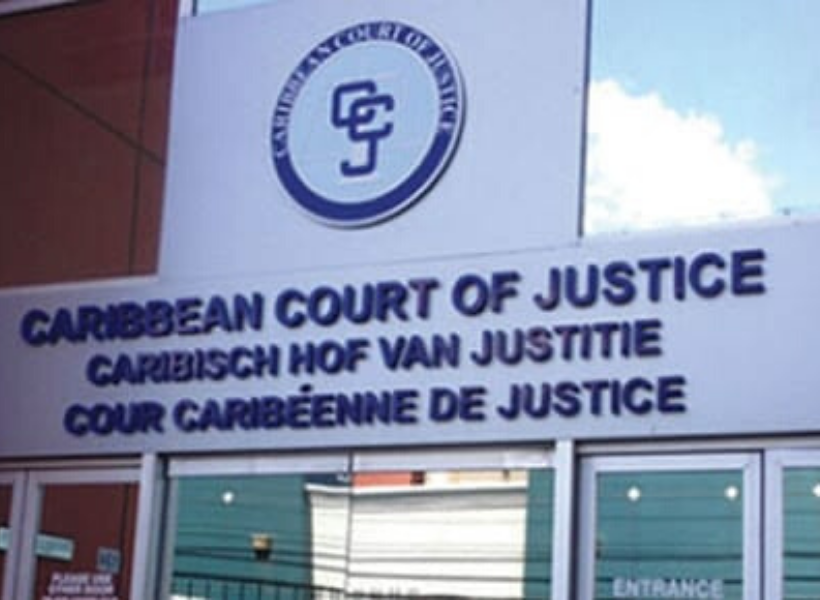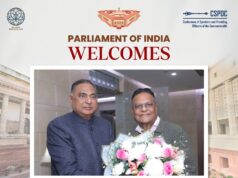By Feona Morrison
The Caribbean Court of Justice (CCJ) has unanimously ruled that the Guyana Court of Appeal fell into error and was plainly wrong when it granted an Order refining the provisions of Article 177 (2) (b) of the Constitution by inserting the word ‘valid’. According to CCJ’s President Justice Adrian Saunders, the words ‘more votes are cast’ in this constitutional provision needed no refinement as it is “plain and simple language” and has always said what it meant and meant what it said.
Article 177 (2) (b) reads: “Where there are two or more Presidential candidates, if more votes are cast in favour of the list in which a person is designated as presidential candidate than in favour of any other list, that Presidential candidate shall be deemed to be elected as President and shall be so declared by the Chairman of the Elections Commission acting only in accordance with the advice of the Chief Election Officer, after such advice has been tendered to the Elections Commission at a duly summoned meeting”.
The Court of Appeal in its decision ordered that the words ‘more vote are cast’ are to be interpreted as meaning ‘more valid votes are cast’ within the terms of Order No. 60 of 2020 issued by the Guyana Elections Commission (GECOM) which governs the Recount of all ballots cast in the March 02, 2020 General and Regional elections, for which, more than four month later a winner is yet to be declared.
The CCJ, among other things, noted that an Order issued by GECOM in any particular context can never determine how the Constitution is to be interpreted. The Court noted, too, that it is a matter of elementary constitutional law that if ordinary legislation is in tension with the Constitution, then the courts must give precedence to the words of the Constitution, and not the other way around.
“With respect, the notion that Order No. 60 of 2020 could either impact interpretation of the Constitution or create a new election regime at variance with the plain words of the Constitution is constitutionally unacceptable,” the CCJ held.
“By the unnecessary insertion of the word ‘valid’, the Court of Appeal impliedly invited [Chief Elections Officer Keith Lowenfield] to engage unilaterally in an unlawful validation exercise. This trespassed on the exclusive jurisdiction of the High Court established by Article 163 [of the Constitution which is triggered by an election petition) after the elections have been concluded]. It was inconsistent with the constitutional framework for the [Chief Elections Officer] or GECOM to disenfranchise thousands of electors in a seemingly non transparent and arbitrary manner, without the due processes established in Article 163 and the National Assembly (Validity of Elections) Act,” said Justice Adrian Saunders, as he delivered the highly anticipated ruling.

The bench of the Court which also comprised Justices Denys Barrow,Maureen Rajnauth-Lee, Peter Jamadar and Jacob Wit reasoned that the concept of ‘valid votes’, is nothing new, as it is well known to the legislative framework governing the electoral process.
In fact, the five judges agreed that the concept has a particular meaning in that context. The CCJ was keen to point out that the phrase ‘valid votes’ appears several times in the Representation of the People Act including at Section 96 which calls on Lowenfield to calculate “the total number of valid votes of electors which have been cast for each list of candidates.”
Validity in this context means, and could only mean, those votes that, ex facie, are valid, the CCJ determined in its ruling which can possibly bring an end to the ongoing electoral impasse.
The Regional Court added: “The determination of such validity is a transparent exercise that weeds out of the process, for example, spoilt or rejected ballots. This is an exercise conducted in the presence of the duly appointed candidates and counting agents of contesting parties. It is after such invalid votes are weeded out that the remaining “valid” votes count towards a determination of not only the members of the National Assembly but, incidentally as well, the various listed Presidential candidates.”
Further to that, the CCJ said that if the integrity of a ballot, or the manner in which a vote was procured, is questioned beyond this transparent validation exercise, say because of some fundamental irregularity such as those alleged by APNU agent Joseph Harmon of dead people and migrants voting, then that would be a matter that must be pursued through Article 163 of the Constitution.
“At the point in the electoral process where Article 177(2)(b) is reached, there is no further need to reference “valid” votes because, subject to Article 163, the relevant validation process has already been completed. Unless and until an election court decides otherwise, the votes already counted by the recount process as valid votes are incapable of being declared invalid by any person or authority,” the CCJ further held.













